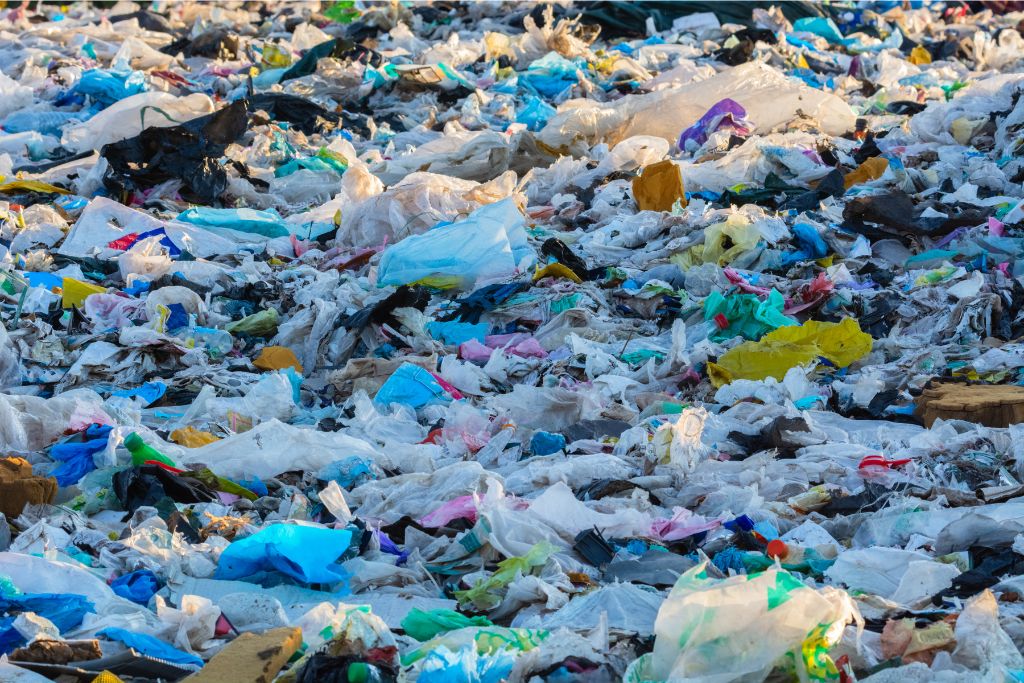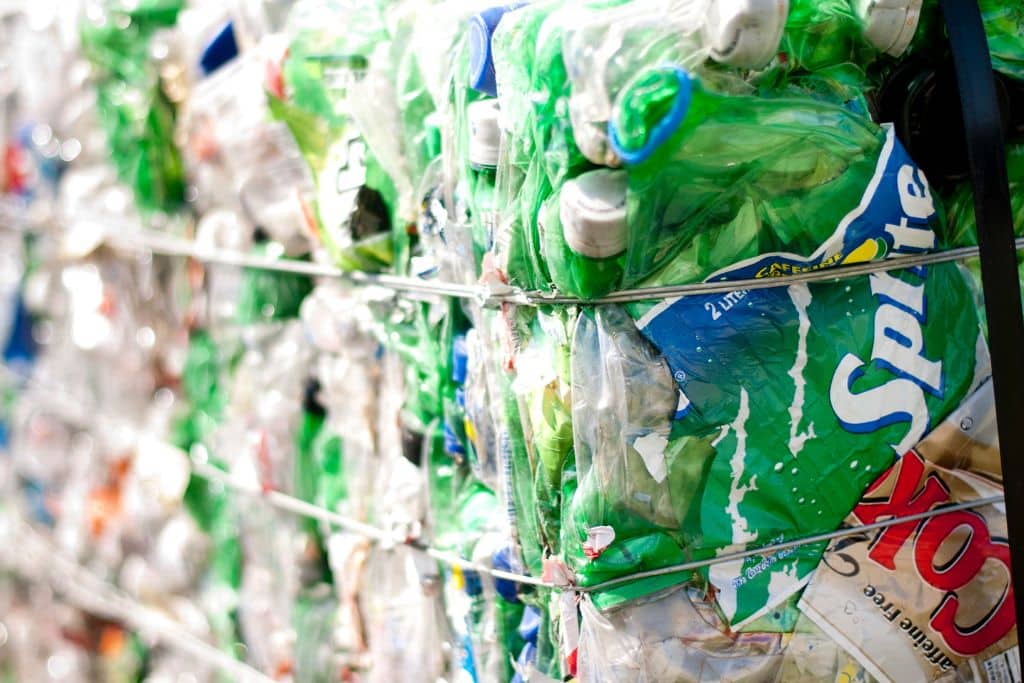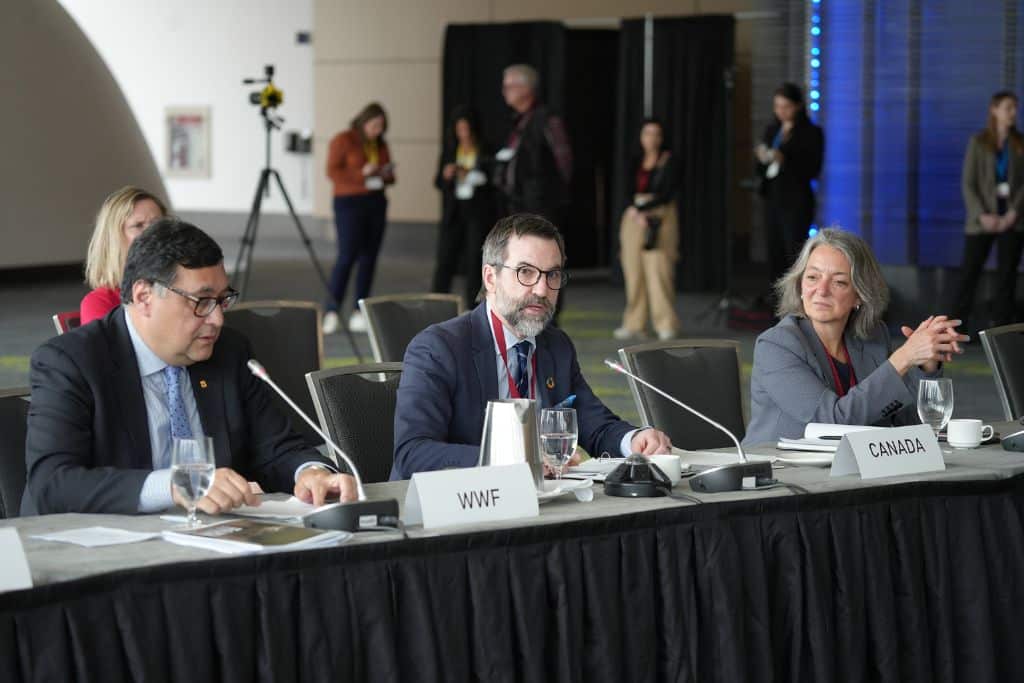World
Why the World Urgently Needs a Global Plastic Treaty | Earth.Org

Millions of tons of plastic waste enter the environment each year, with impacts felt across oceans, waterways, and land. A Global Plastic Treaty can provide a coordinated international framework to tackle plastic production, use, and disposal, promoting sustainable practices and reducing waste at its source. By bringing together governments, this treaty can spur innovation in alternative materials, enhance recycling efforts, and establish legally binding commitments to reduce plastic pollution.
—
Plastic pollution is one of the most pressing environmental issues of our lifetime. As production of disposable plastic continues to grow, it becomes increasingly difficult to manage it.
Plastic pollution is prominent in many countries around the world, especially in places with inefficient waste collection systems. This also extends to developed countries with low recycling rates that do not adequately manage discarded plastics.
It is estimated that over 8 million tons of plastic waste end up in the oceans each year. As most plastics do not break down, they are gradually accumulating in our oceans, where they can take centuries to decompose, without ever really disappearing. This poses significant threats to aquatic life, human health, and the marine ecosystem. Studies estimate that by 2050, there could be more plastic in the oceans than fish. The issue of plastic pollution has become so widespread that it has prompted the United Nations To campaign for a global plastic treaty.
The History of Plastic
The story of plastic began in the early 19th century with the invention of Parkesine, the first synthetic plastic, patented in 1862 by Alexander Parkes. This marked the beginning of a new era in material science, as the versatility and durability of plastics opened the door to countless applications.
The 20th century saw a revolution in plastic production: the advent of entirely synthetic plastics. In 1907, Belgian chemist and marketeer Leo Baekeland pioneered the first fully synthetic plastic – Bakelite – further solidifying plastic’s place in modern manufacturing.
The real turning point came after World War II, when plastic production exploded. The war had accelerated advancements in polymer chemistry, leading to the mass production of plastics like polyethylene and polypropylene. By the 1960s, plastics began to dominate consumer goods, from packaging to household items. This rapid adoption was fueled by the material’s low cost and versatility.
However, the environmental implications of this boom were not immediately apparent. For decades, plastics were celebrated for their convenience and utility, while the long-term consequences of their production and disposal were largely ignored.
Plastic in Numbers
Despite increasing global efforts, only 9% of plastics are recycled. This low rate can be attributed to the complexities involved in recycling products made from various types of polymers, as well as insufficient infrastructure for waste management.

Plastic, which is produced from fossil fuels, contributes 3.4% of global greenhouse gas emissions, comparable to the emissions of the entire aviation industry. Humans now generate 400 million tonnes of plastic waste every year, 60% of which end up in our natural environment.
According to the article published in March, 2023 by PLOS ONE, it is estimated that there are approximately 82 to 358 trillion plastic particles afloat in the world’s oceans, with a mean estimate of 171 trillion plastic particles recorded in 2019, with a mean weight of 2.3 million tons
More on the topic: 8 Shocking Plastic Pollution Statistics to Know About
The consequences of plastic pollution extend beyond marine environments; they threaten ecosystems, wildlife, and human health. Microplastics, tiny plastic particles resulting from the degradation of larger plastics, have been found in drinking water, seafood, and even the air we breathe. While it is still being investigated, some research indicates that these particles can lead to various health problems, such as endocrine disruption and potentially cancer.
The effects of plastic pollution on wildlife are particularly alarming. Marine animals such as sea turtles, dolphins, and seabirds often ingest plastic debris, mistaking it for food. In 2019, a turtle hatchling was found dead with 104 pieces of plastic in its stomach. According to the UN, more than 51 trillion microplastic particles have already littered the world’s seas, and it is predicted that 99% of marine species will consume microplastic by 2050 if nothing is done to slow down plastic pollution.
Treaty Negotiations
Recognizing the urgent need for coordinated action, the UN has initiated efforts to develop a Global Plastic Treaty. The treaty aims to establish legally binding commitments among nations to reduce plastic production, enhance recycling efforts, and promote sustainable alternatives.
António Guterres, the UN Secretary-General, highlighted that “plastic waste is now found in the most remote areas of the planet. It kills marine life and severely impacts communities that rely on fishing and tourism.”
Voluntary corporate initiatives have proven insufficient as a global solution for the global plastic problem, and without stronger rules and harmonized regulations across the full plastic life cycle, real change will not be possible.
In early 2022, the United Nations Environment Assembly adopted Resolution 5/14, agreeing to adopt a legally binding global plastics treaty by the end of 2024.
Since then, four Intergovernmental Negotiating Committee (INC) sessions have been held, with the most recent – INC-4 – ending on April 29, 2024. While some progress was made in identifying critical products and chemicals of concern, the talks did not adequately address the need to reduce primary plastic production.
The influence of industry lobbyists has been a significant hurdle in the negotiations. At INC-4 in Ottawa, Canada, nearly 200 fossil fuel lobbyists were present, a 37% increase from the previous INC, raising concerns about the potential for corporate interests to undermine the treaty’s effectiveness.

On the last day of INC-4, 28 nations, including Australia, Nigeria, and the Philippines, launched the “Bridge to Busan: Declaration on Primary Plastic Polymers.” This declaration emphasizes that a global treaty focused on plastic pollution must address the issue of production. However, skepticism remains about the feasibility of achieving a signable treaty by the end of 2024, given the complexities of the negotiations.
Another critical aspect that appears to be lacking in the global plastics treaty discussions is the accountability of polluting companies for the waste they have generated. Studies of branded plastic pollution have shown that approximately 60 companies are responsible for over half of the world’s plastic pollution. For the sixth consecutive year, Coca-Cola has been recognized as the leading polluter in the global Brand Audit initiative, setting a new record with a total of 33,820 pieces of plastic waste—its highest tally since the project began. Along with requiring companies to reduce plastic production, it is also essential to ensure that polluting companies are responsible for funding the clean-up of the waste they have caused.
The world’s rivers, oceans, and seas have become both transportation routes and dumping grounds for plastic produced by human activities. This pollution incurs substantial costs, including restoration efforts, lost revenue from tourism, and the societal impacts of a degraded environment.
The need for a Global Plastic Treaty is more urgent than ever. As plastic pollution escalates, international cooperation is essential to create enforceable solutions. By establishing a treaty that emphasizes accountability and innovation, we can combat plastic pollution and foster a circular economy that minimizes waste and maximizes resource efficiency.
This treaty must involve all stakeholders – governments, businesses, and civil society – working together to develop and implement comprehensive strategies that address the entire lifecycle of plastic. Only through collective action can we ensure that future generations inherit a healthier planet, free from the burdens of plastic pollution.
This story is funded by readers like you
Our non-profit newsroom provides climate coverage free of charge and advertising. Your one-off or monthly donations play a crucial role in supporting our operations, expanding our reach, and maintaining our editorial independence.
About EO | Mission Statement | Impact & Reach | Write for us









